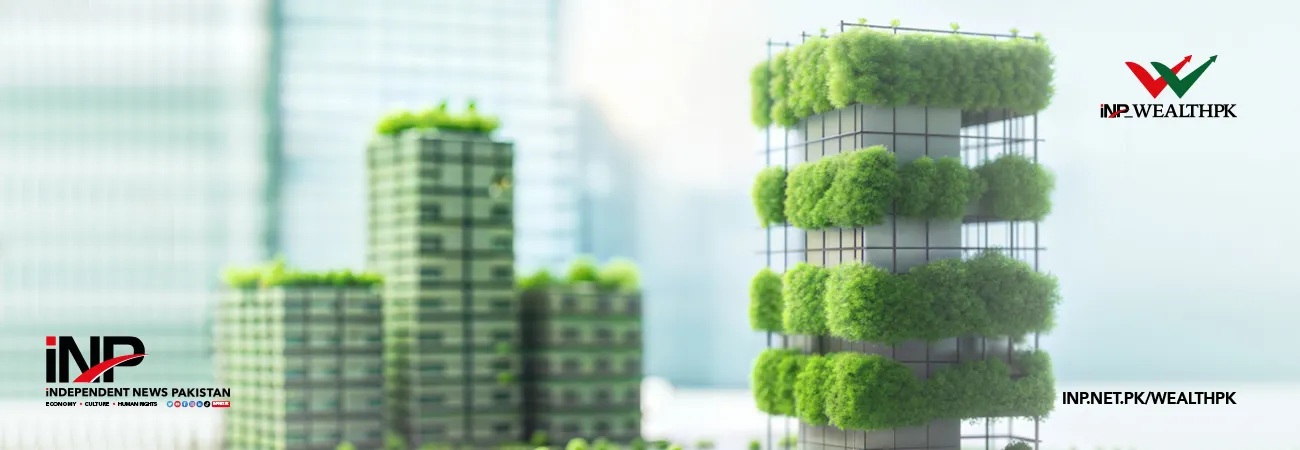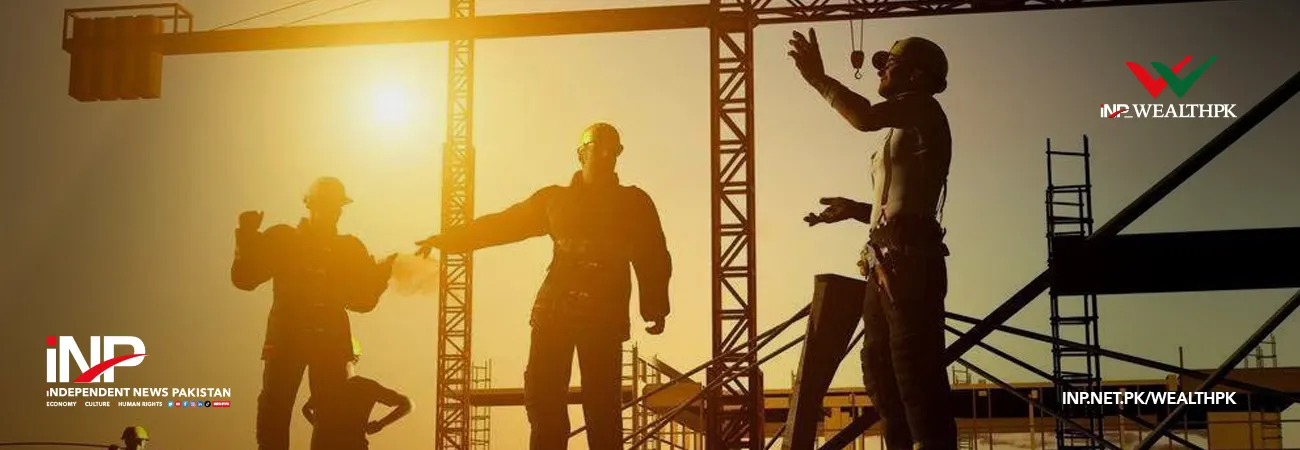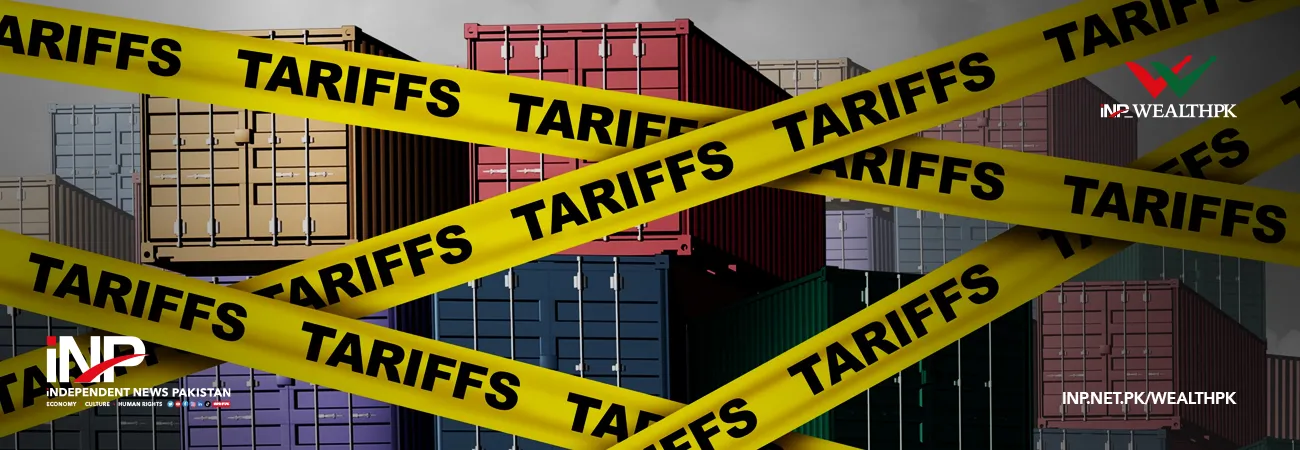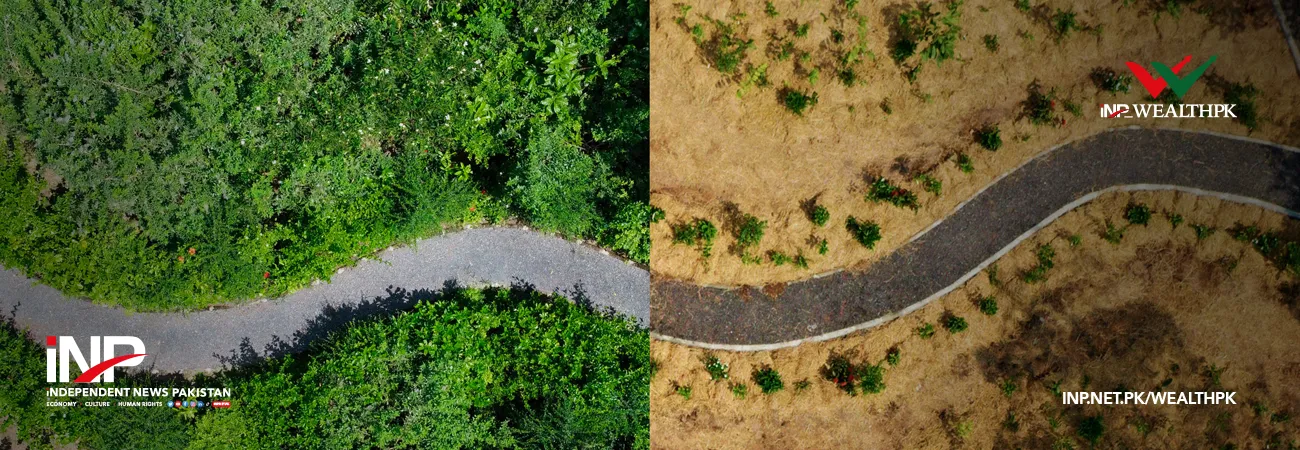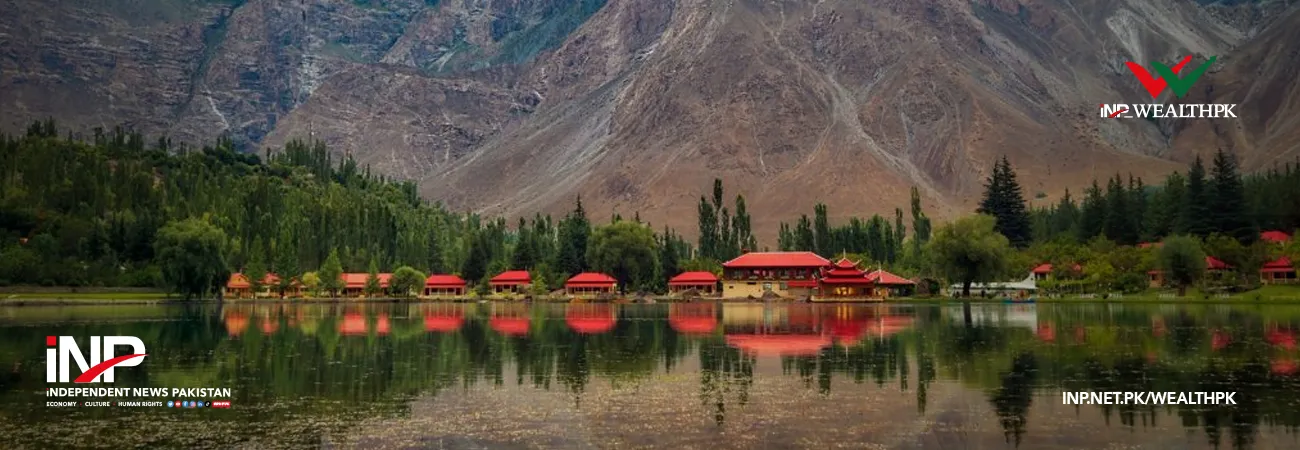INP-WealthPk
Ayesha Saba
Experts emphasise the need for construction of eco-friendly, energy-efficient buildings to mitigate risks posed to the real estate sector by the climate change phenomenon.
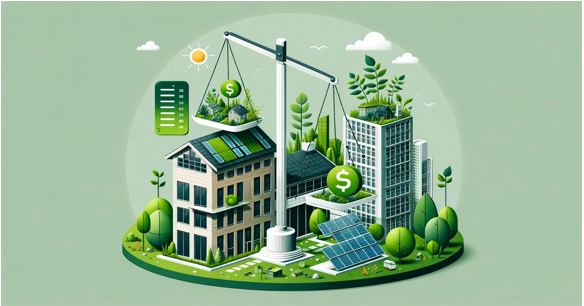
Speaking to WealthPK, Muhammad Arif Goheer, Principal Scientific Office Coordinator, Global Change Impact Studies Centre (GCISC), the Ministry of Climate Change, said: “In a country like Pakistan, where climate challenge is intensifying, green construction is not just an environmental necessity but a strategic opportunity to drive sustainable development. By embracing this approach, Pakistan can safeguard its future against climate risks, improve living conditions and position itself as a leader in environmentally conscious development.” He maintained that the construction sector, one of the largest contributors to carbon emissions and environmental degradation, must transition toward practices that minimise ecological harm.
“By integrating renewable energy solutions such as solar panels, water-efficient systems, and climate-resilient designs, green buildings can significantly reduce their environmental impact.” Goheer pointed out that such practices also align with Pakistan’s commitments under the Paris Agreement to reduce greenhouse gas emissions, ensuring compliance with global sustainability targets. “Green construction is economically viable, offering long-term savings on energy and maintenance despite higher initial costs. Energy-efficient buildings reduce utility expenses, crucial in a country facing energy shortages and rising tariffs,” he pointed out.
“However, challenges remain, particularly in terms of awareness and capacity building within the construction industry,” he emphasized, stressing the need for vocational training programmes, knowledge-sharing platforms and collaboration with international green construction experts to bridge these gaps. Meanwhile, talking to WealthPK, an official from National Energy Efficiency Conservation Authority (NEECA), said: “Pakistan’s real estate sector is particularly vulnerable to climate-induced disasters, such as floods and heatwaves, which can erode property values and jeopardise investments.”
“Sustainable building practices, such as rainwater harvesting, permeable pavements and resilient infrastructure design can help mitigate these risks.” He said that NEECA was taking the lead in a series of initiatives aimed at fostering energy efficiency within the building sector. “A key initiative involves the formulation and execution of the Energy Conservation Building Code (ECBC). The scope of the ECBC-2023 includes several aspects of building design and construction. These include new buildings and their systems, new systems and equipment in existing buildings, and an increase in the electricity load beyond the prescribed limits.
The code also covers the retrofitting of conventional buildings to convert them into energy-efficient buildings.” The official said that the ECBC-2023 promotes overall sustainability by adopting sustainable design and construction practices, along with integrating energy-efficient electrical, mechanical and HVAC systems. “This approach helps reduce energy demand, minimszing environmental impact.”
Credit: INP-WealthPk



